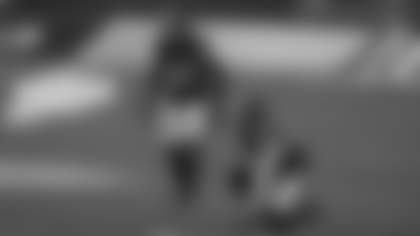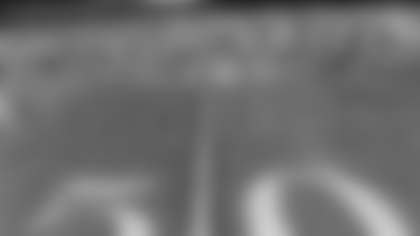Q. On the return of the blocked extra point in Indianapolis, if Jesse James or Jordan Berry committed a penalty, like grabbing the facemask, to get the returner on the ground before he crossed the goal line, what happens next?
A. The Colts obviously don't get the points, and I would imagine the penalty would be assessed on the subsequent down, which would be the kickoff.
**
Q. When an extra point attempt is blocked, and under the assumption the snap and hold were executed properly, what usually has happened to cause it?**
A. It's usually a pad-level issue that creates a penetration issue. Ultimately, it usually comes down to that. You have to get penetration to get a block if operation is not an issue. Usually that penetration is created by a pad-level issue.
Q. Can a kick be blocked off the edge in the NFL?
A. No. Unless your operation time (snap-hold-kick) is below the line, that's not happening.
Q. The Jesse James-Jordan Berry hustle play was the second time this season the special teams have had to respond to a potential disaster scenario, and both times the disaster was averted. Can that response be practiced?
A. We talk about it, but some of those things in the manner in which they unfold, you can't practice them. It's really just football character being revealed. I don't want to take anything away from the men you mentioned. Those efforts are extraordinary, and they're to be highlighted. Whether it's Jesse James or Jordan Berry, or Vance McDonald in Chicago – significant, significant contributions to our efforts, and they're to be highlighted.
Q. Is it something to be reviewed in the classroom?
A. Certainly. If you analyze the play, as soon as the kick got blocked, both Jordan Berry and Jesse James got vertical, and they got vertical and they found the ball as they got vertical. If you just find the ball right there, you're going to be in a chase. Both guys got vertical, got out of there, got clear of the trash, and then they found the ball, and that put them in position to get into the pursuit angles that allowed them to finish the play.
Q. This is the last time we'll have a chance to talk until you have to make a decision on Cam Sutton. How would you assess his progress since he returned to practice?
A. I like what I've seen from him. The first component of it is his health, and his health seems to be above the line. The second component is his ability to stay wired in and learn and stay up with things while he hasn't been a physical participant. And he has proven he's been on the screws in that area as well. His above-the-neck game has been acceptable. We have an option or two there, which are good things for him and for us.
**
Q. Have you made a decision on Sutton yet?**
A. No, but we will at the 11th hour. We like what he's done. He's put himself in a position for us to make a decision, and so he has done all of the things he has needed to do.
Q. When it comes to the performance of your offense, are you still at a point where you believe the answers can be found in continuing to work on what you've been doing vs. changing some things?
A. I'm still fully committed to what we're doing, who we're doing it with, and how we're doing it. A lot has been written and said about our progress or lack thereof, but the reality is we're a 7-2 team, we're finding ways to win games. I think we also should remind ourselves that six of our nine games have been in hostile environments and what that does for offense, and particularly what that does for offenses in situational football. So I look forward to a bunch of home games down the stretch, in terms of the perspective and maybe the perception of our offensive performance.
Q. Could you elaborate a little bit on the impact of road games on situation football?
A. The crowds wake up on third down, and the inability to communicate makes those downs more difficult. The reality of it is six of our nine games have been in hostile environments, and so on the road across the National Football League you don't convert as many third downs as you do at home, you don't have as many red zone conversions on the road as you do at home, regardless of all other circumstances. So when I look at what we've done offensively, I realize we can be better, but I also realize some of the variables at play that maybe we aren't considering or talking about. So I'll continue to watch. I'll remain committed to our approach and the people we're doing it with.
Q. During your weekly news conference, you talked about going against Dick LeBeau, now the Titans' defensive coordinator. When you were hired by the Steelers in 2007, what went into your decision to retain LeBeau here as the defensive coordinator?
A. Really, it was an easy decision for me. They were having a lot of success, and they had great continuity. I had gotten to know Dick when he was the defensive coordinator with the Cincinnati Bengals and I was a young secondary coach at the University of Cincinnati. He and his staff taught fire-zones to me, because I had watched it from afar and developed an interest in learning it. The Steelers at that time had what I considered to be some of the best 3-4 personnel in football, so there was nothing broken, there was nothing that needed to be fixed. It was just whether or not we could work together, and he's a very reasonable man. He's the best. It was an easy decision to come to, and we had a lot of fun together.
Q. Your first NFL job had been under Tony Dungy, a Tampa-2 disciple, and so you didn't believe that was a better way to do it?
A. At day-zero, you decide what kind of a personality you want your team to have and then you build from there. That building includes personnel to match that vision, and often when you change course there are steps backward in that. There was no need to change course. There was no need for steps backward. We had great continuity. We had a clean schematic approach, we had personnel that fit, and we were having success. It made the decision an easy one.
**
The Steelers grant the wish of a young fan from Colfax, IA
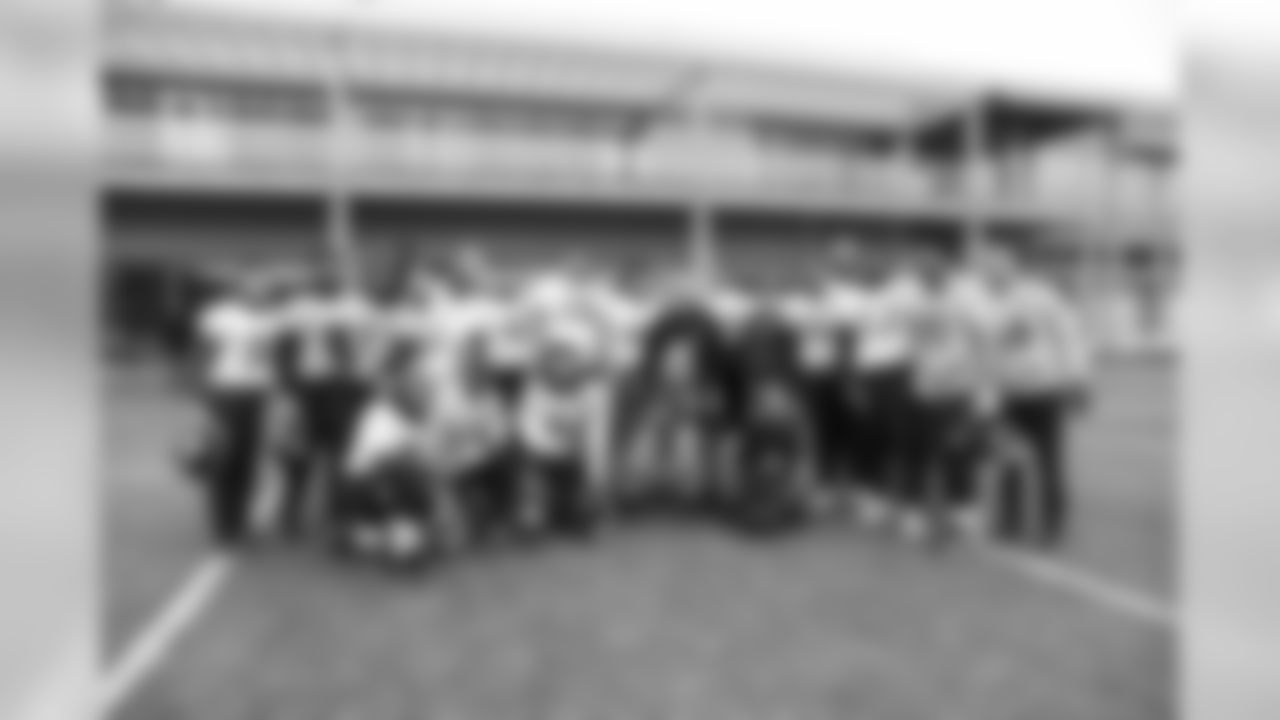
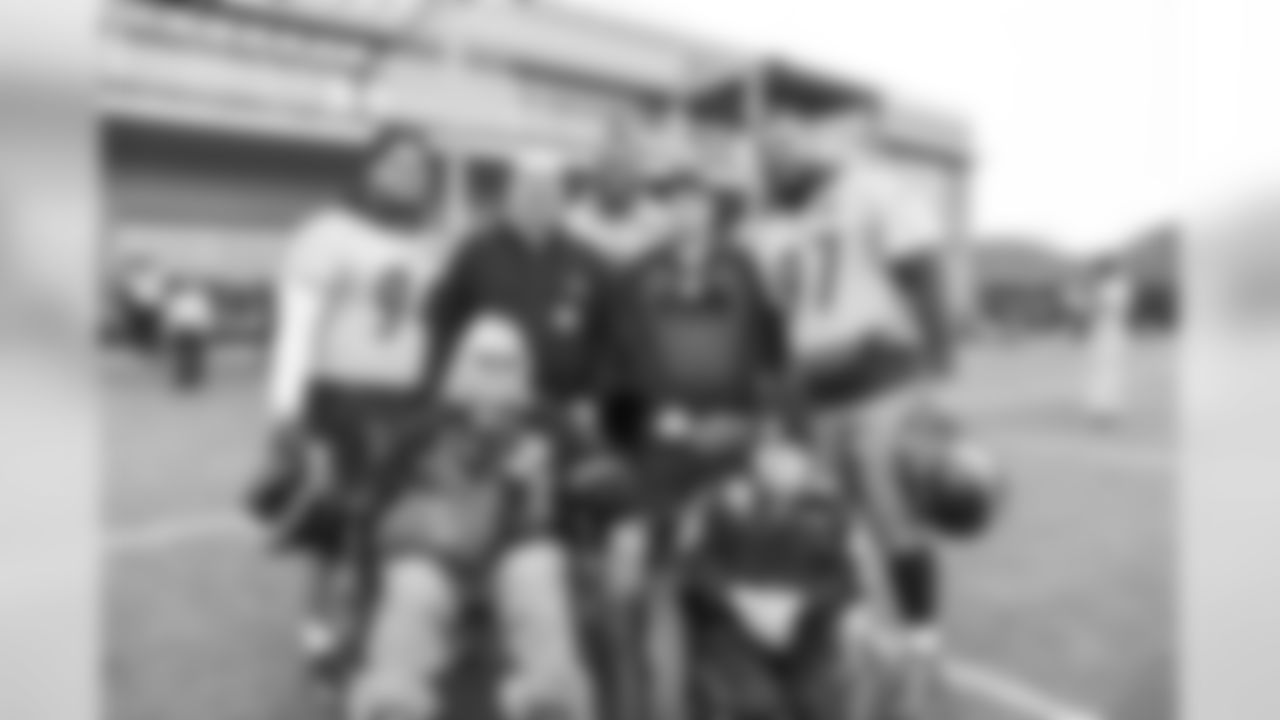
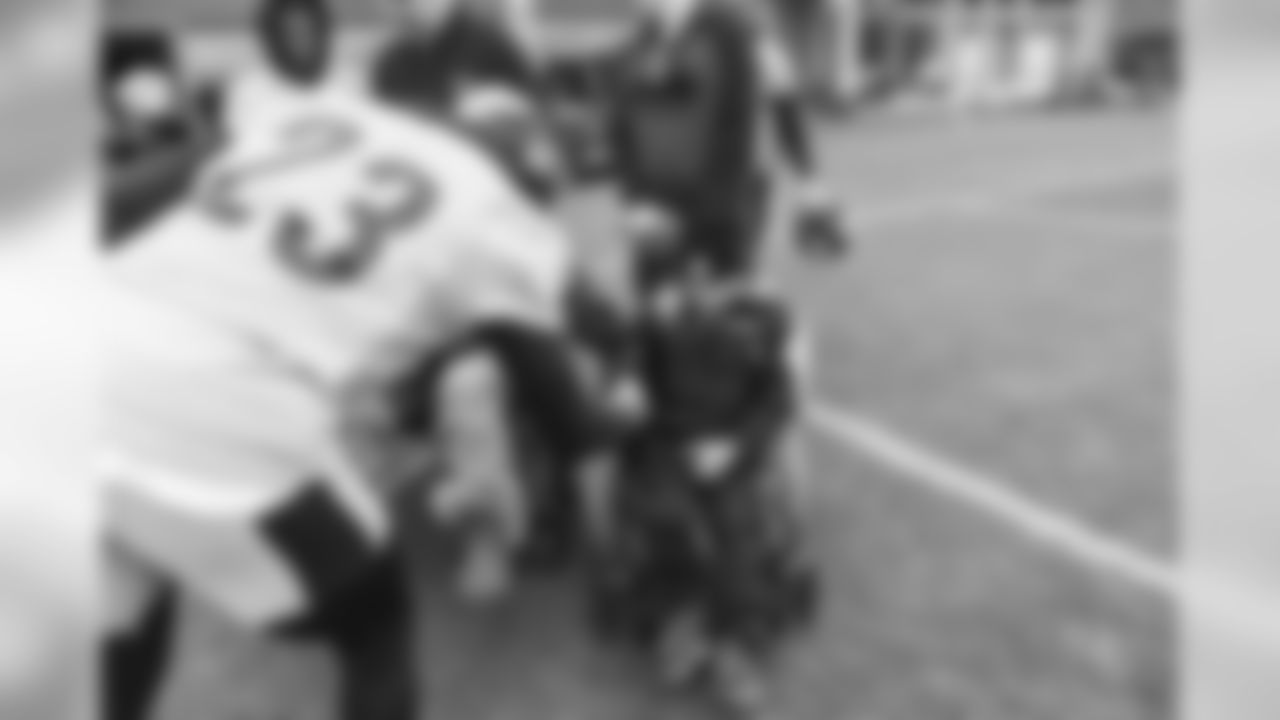
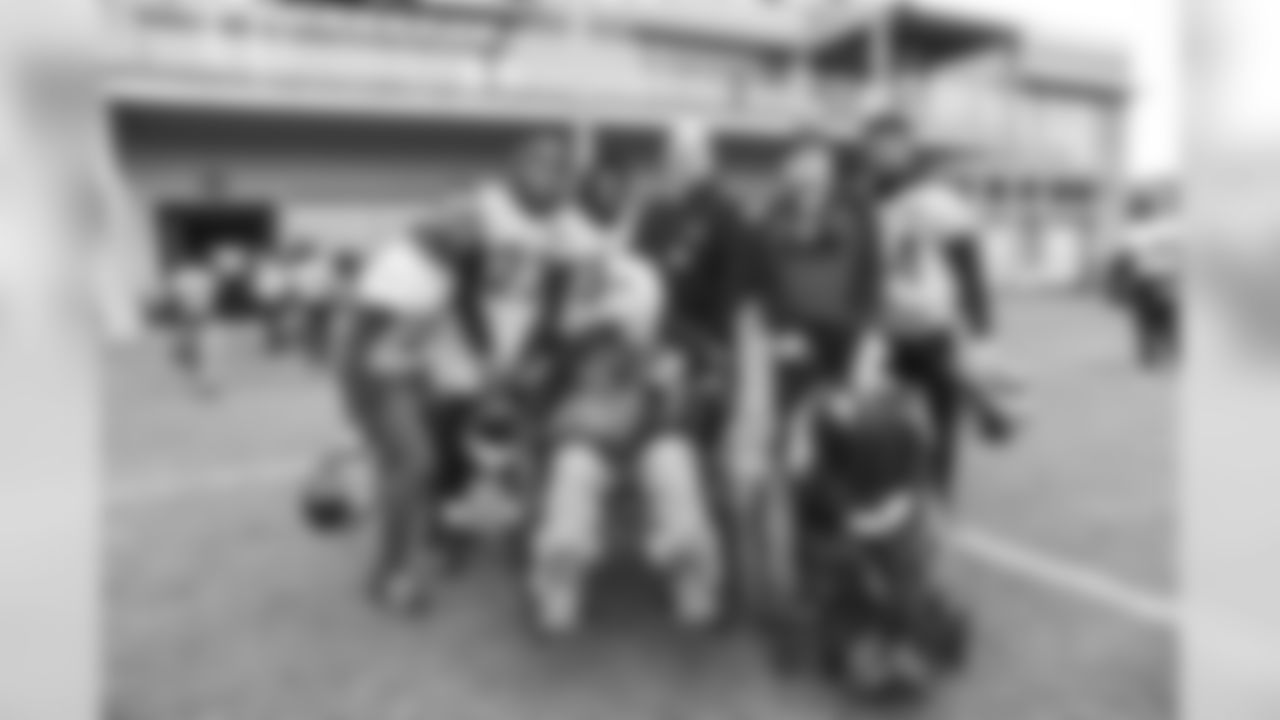
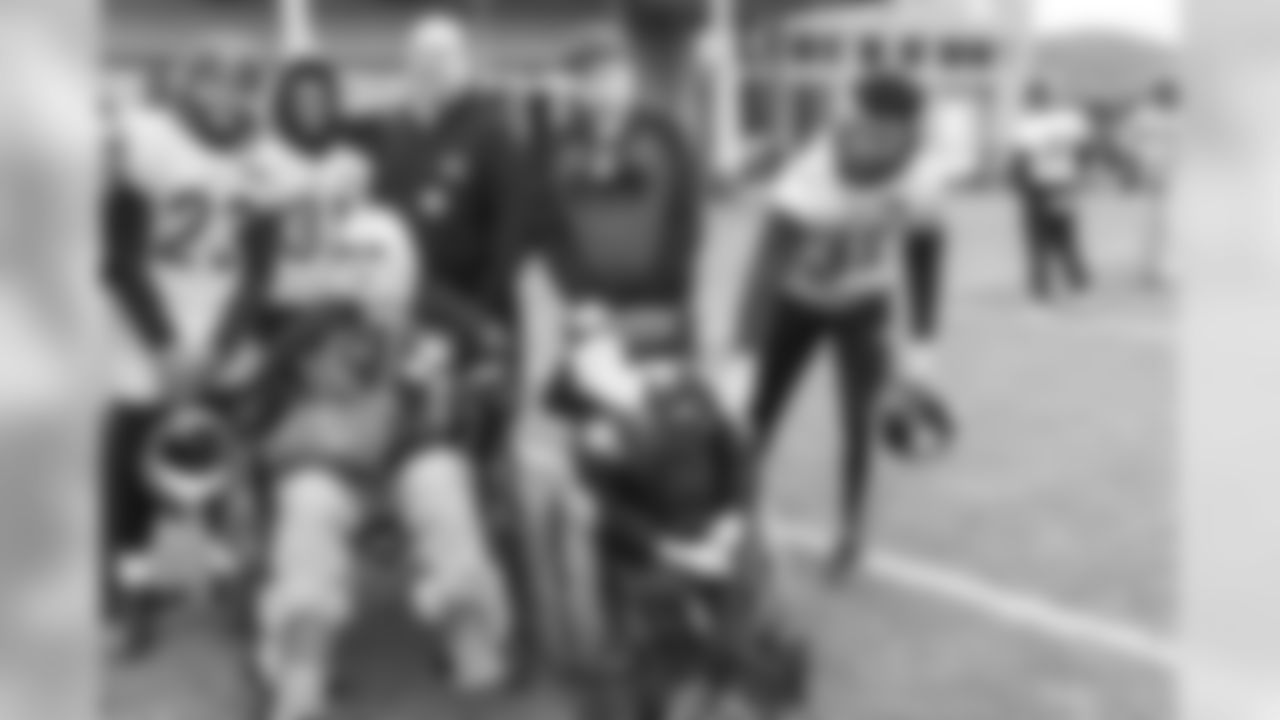
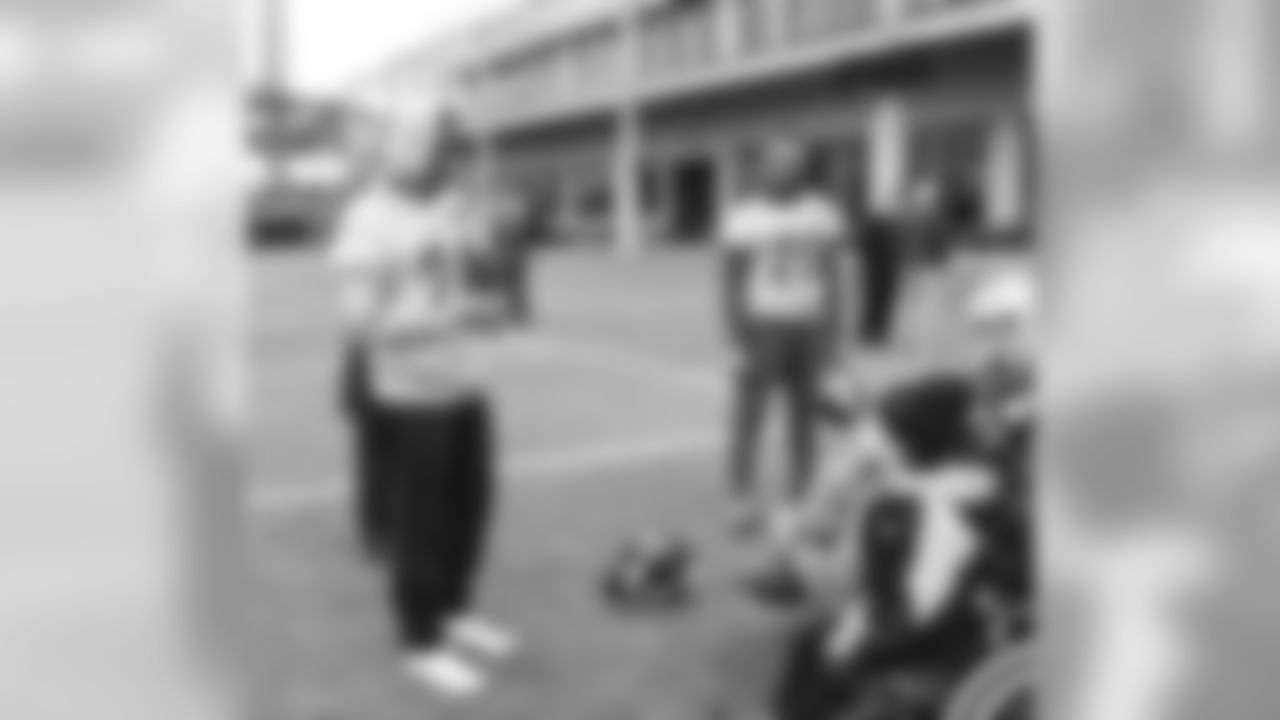
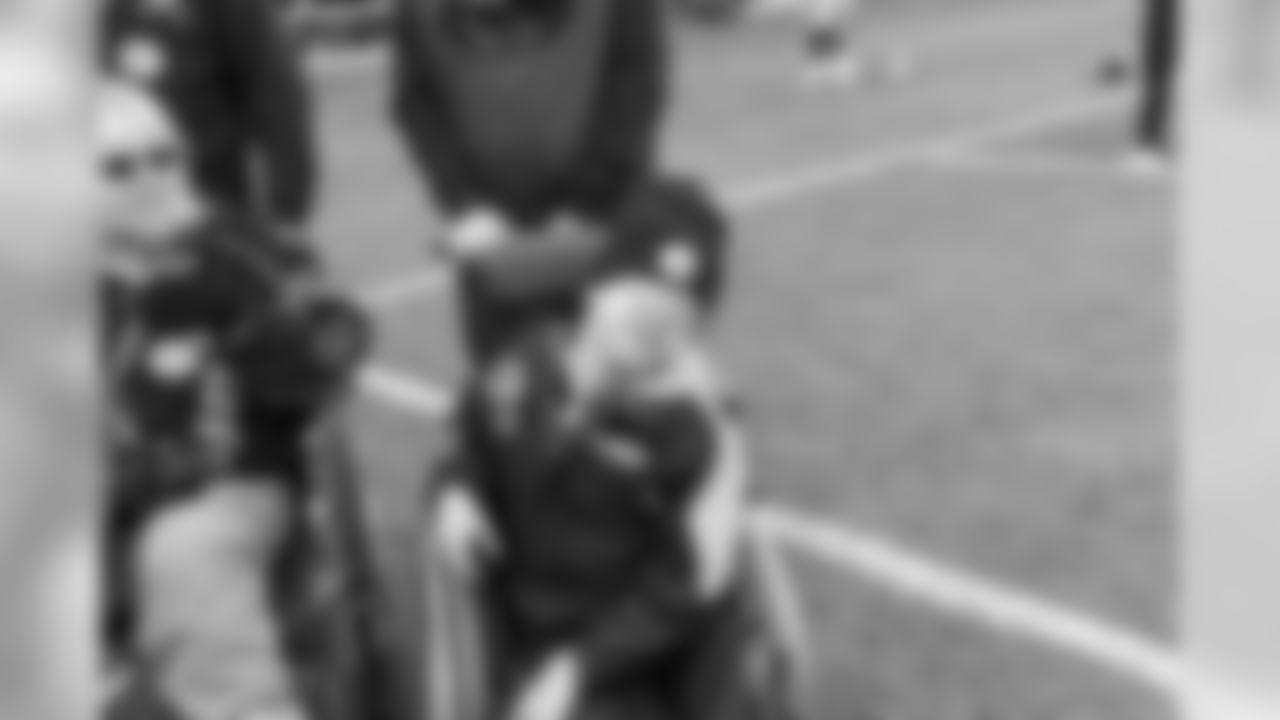
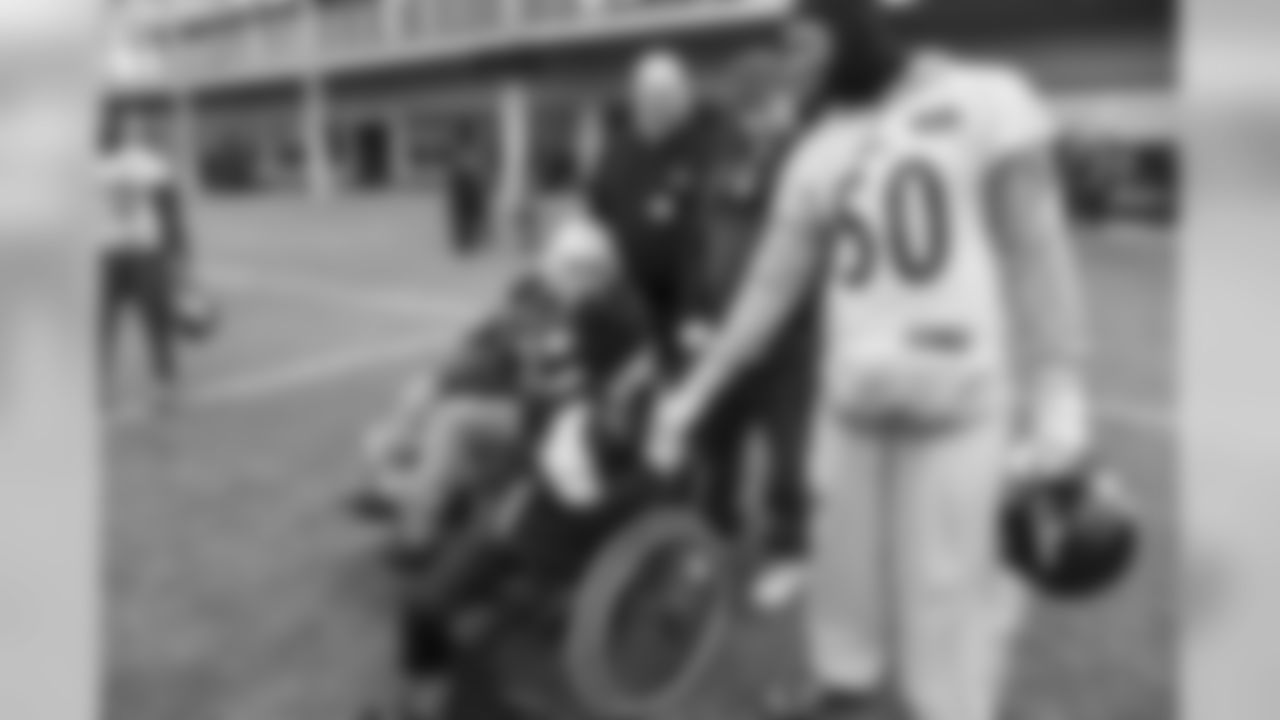
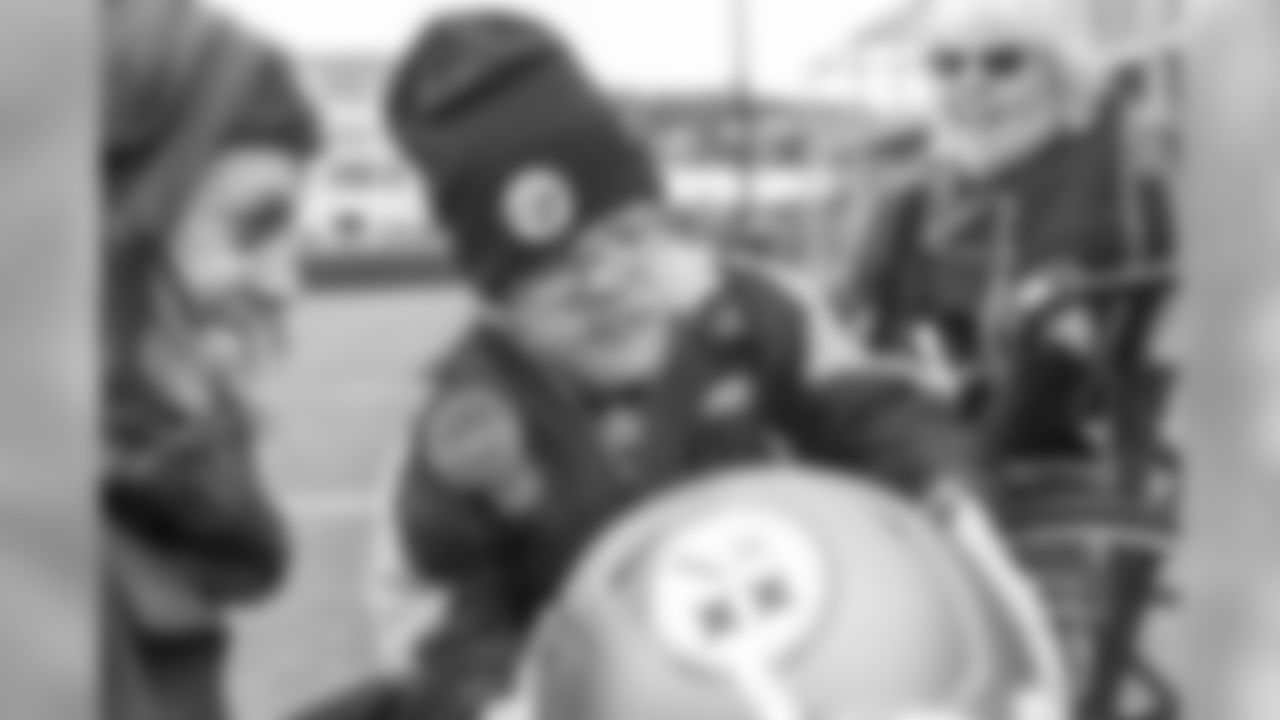
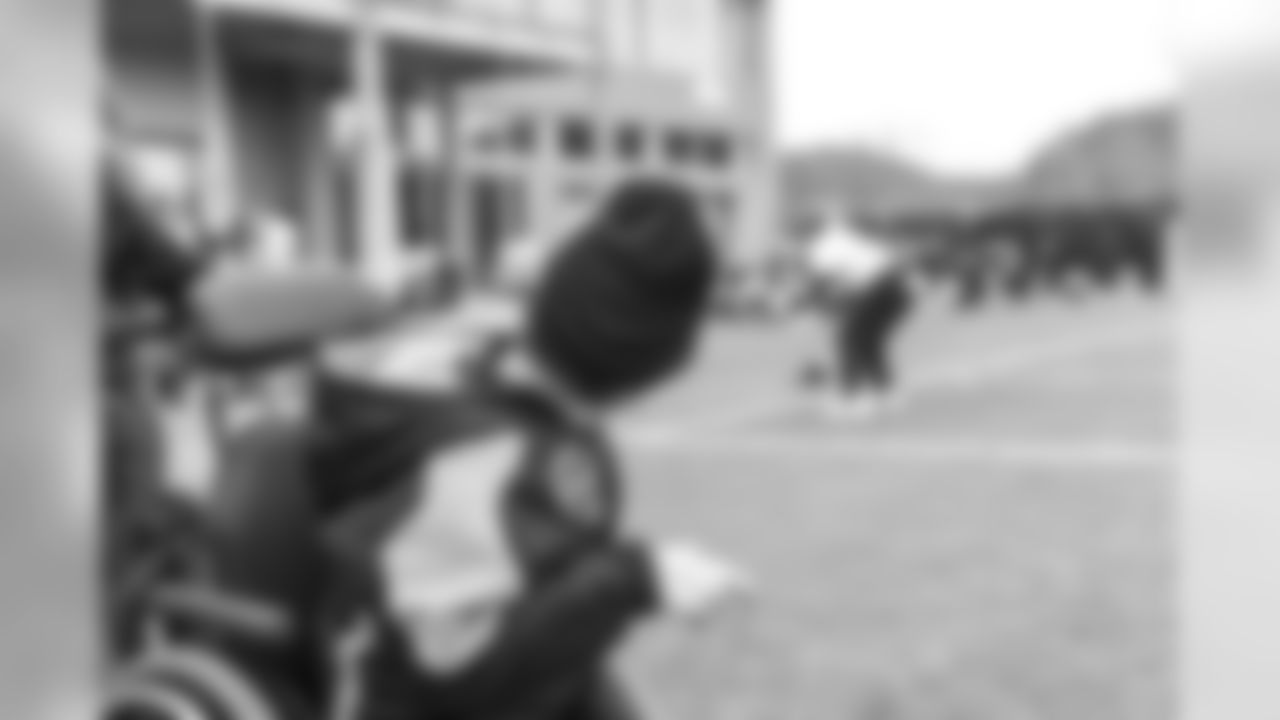
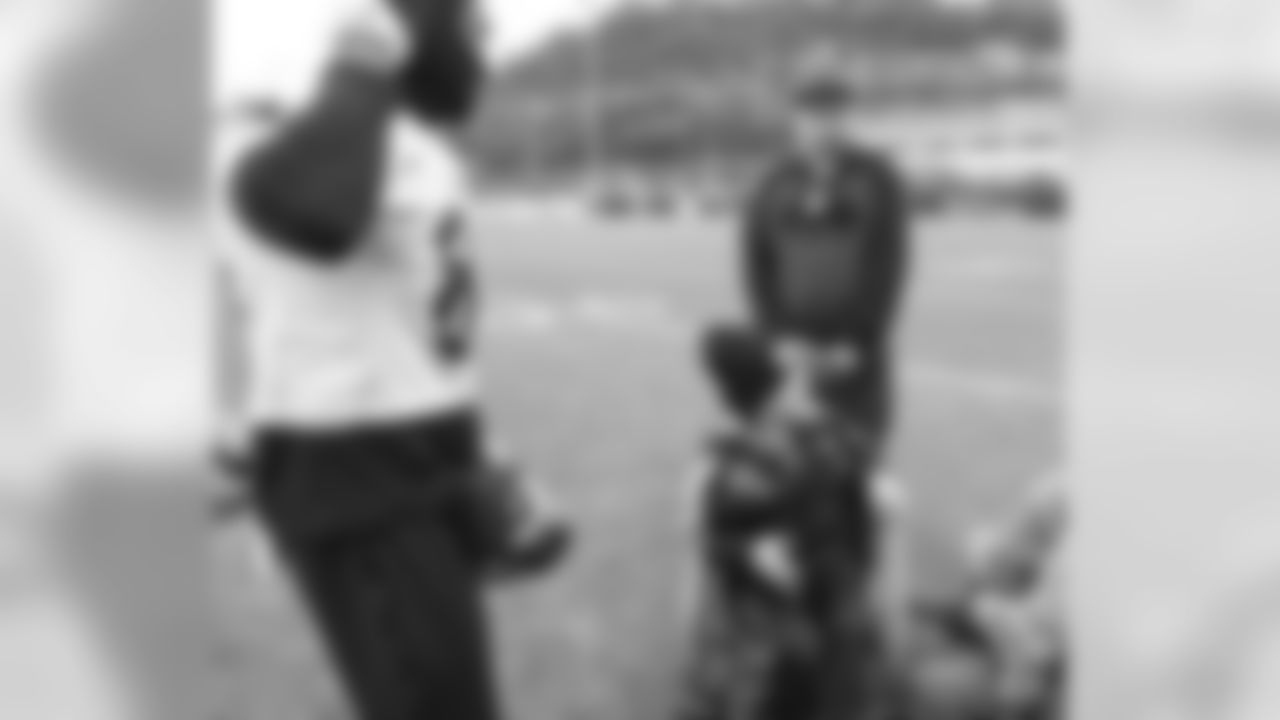
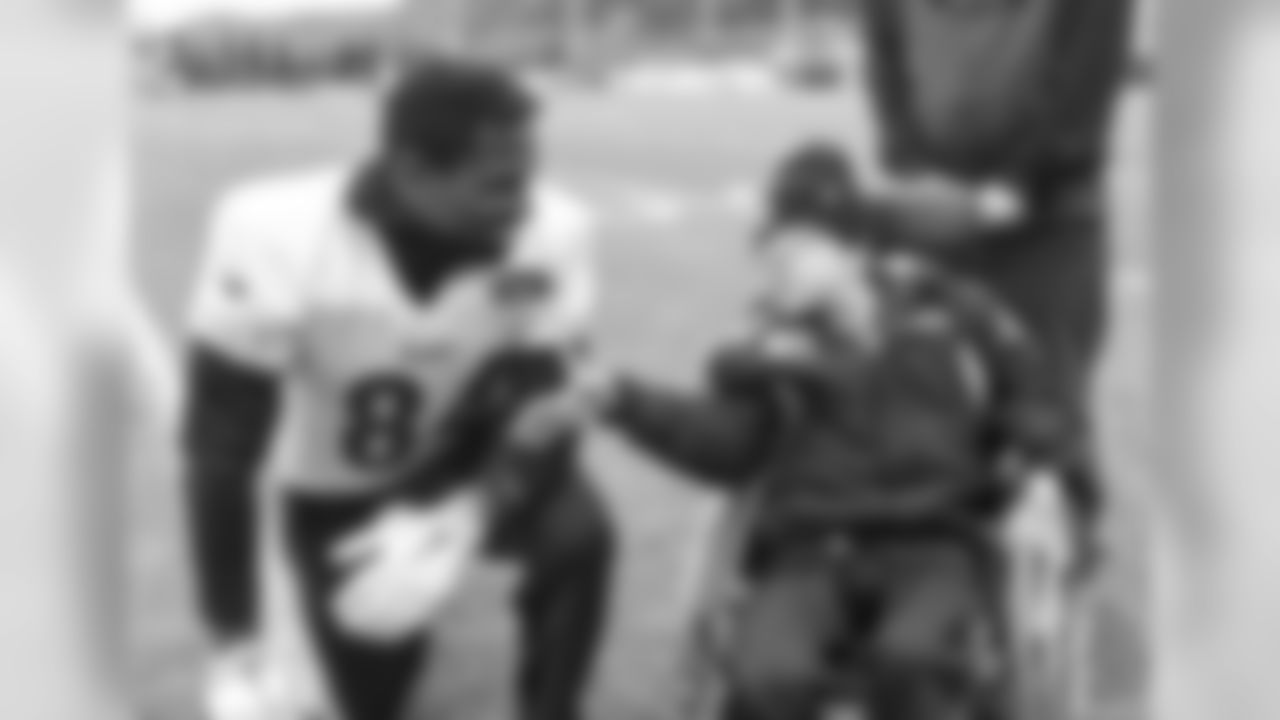
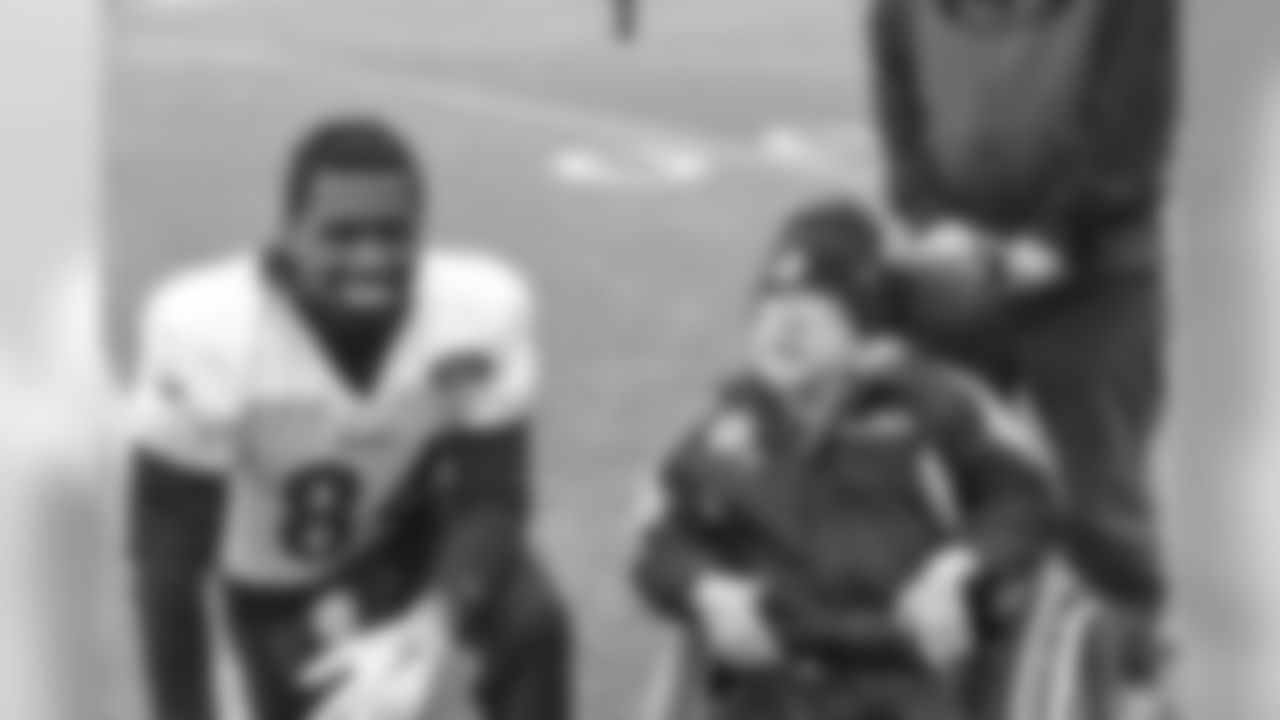
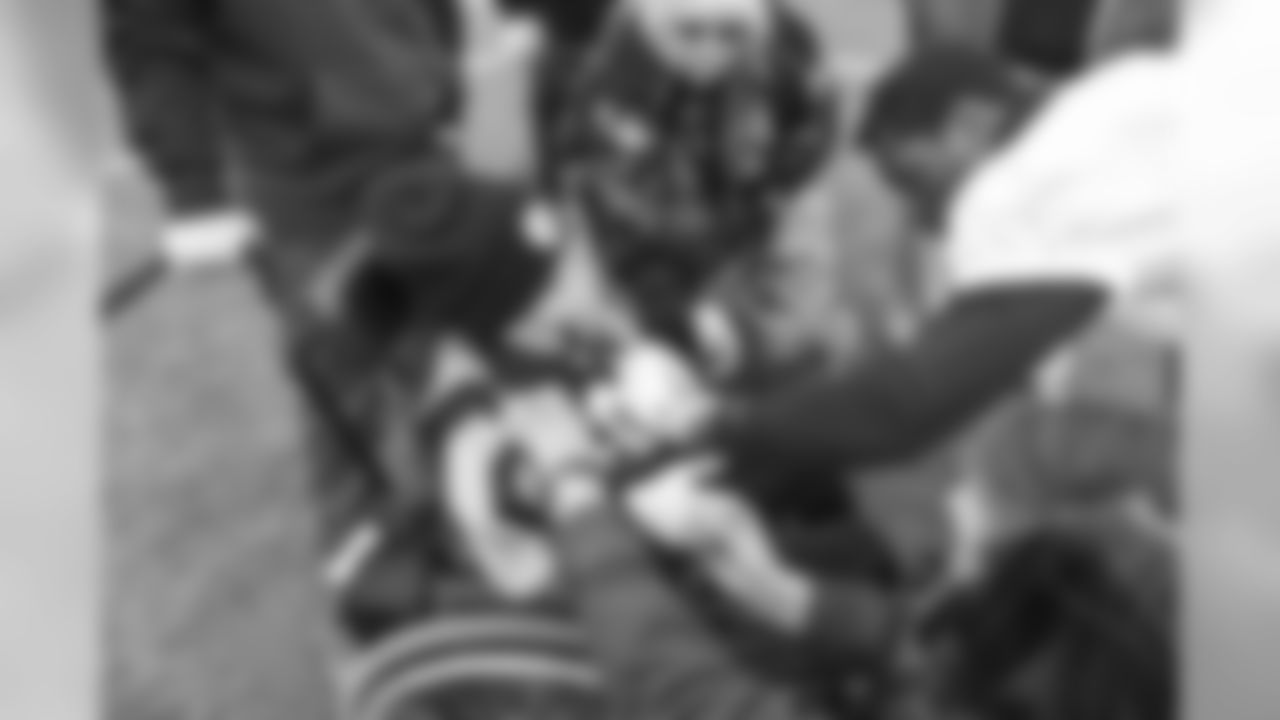
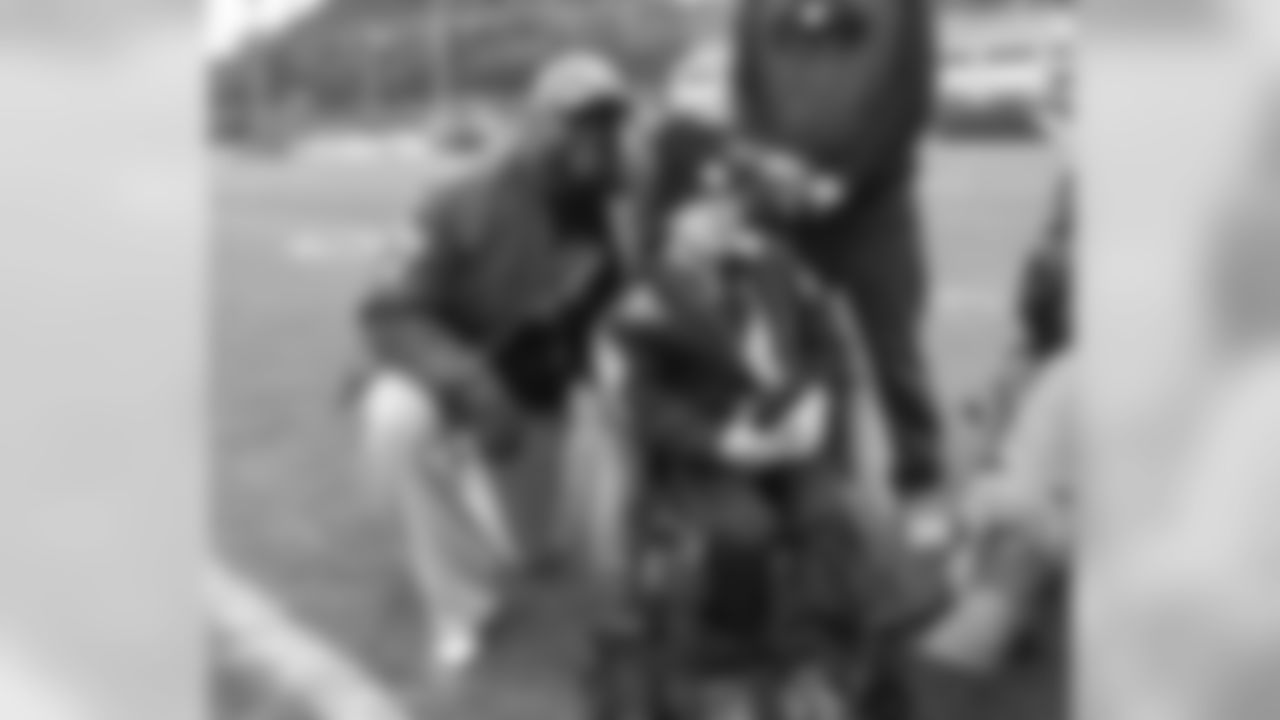
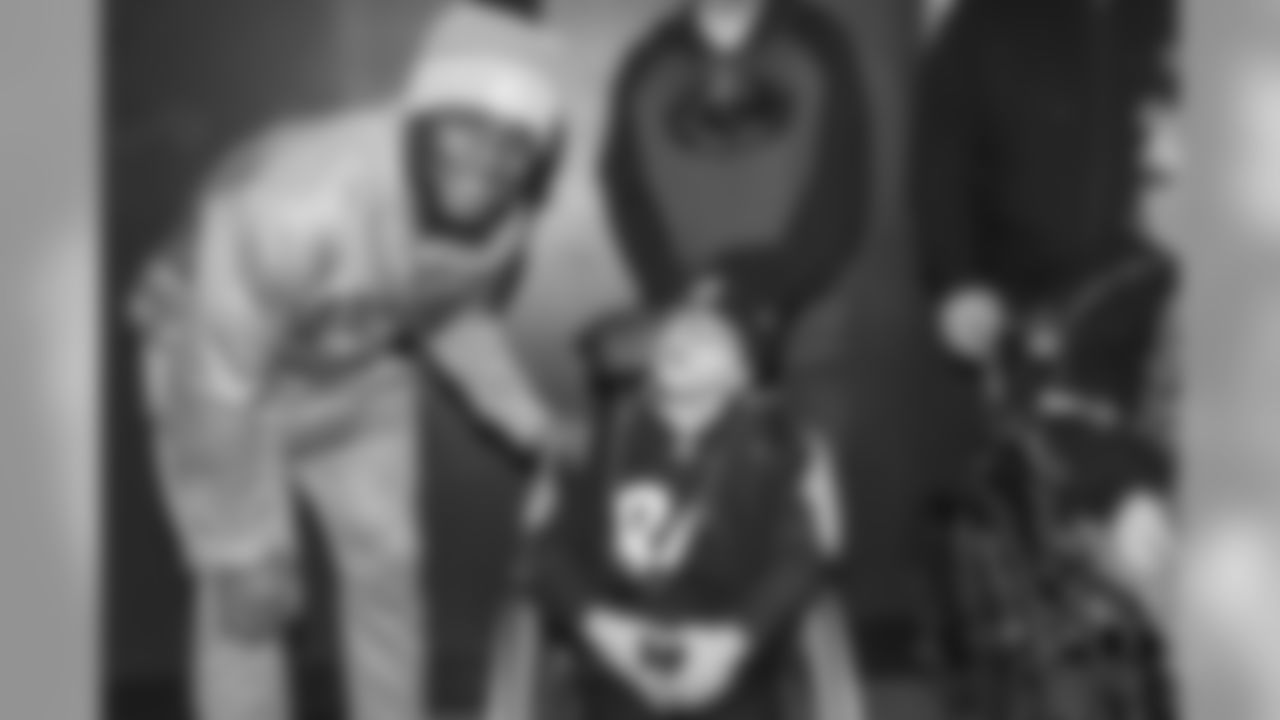
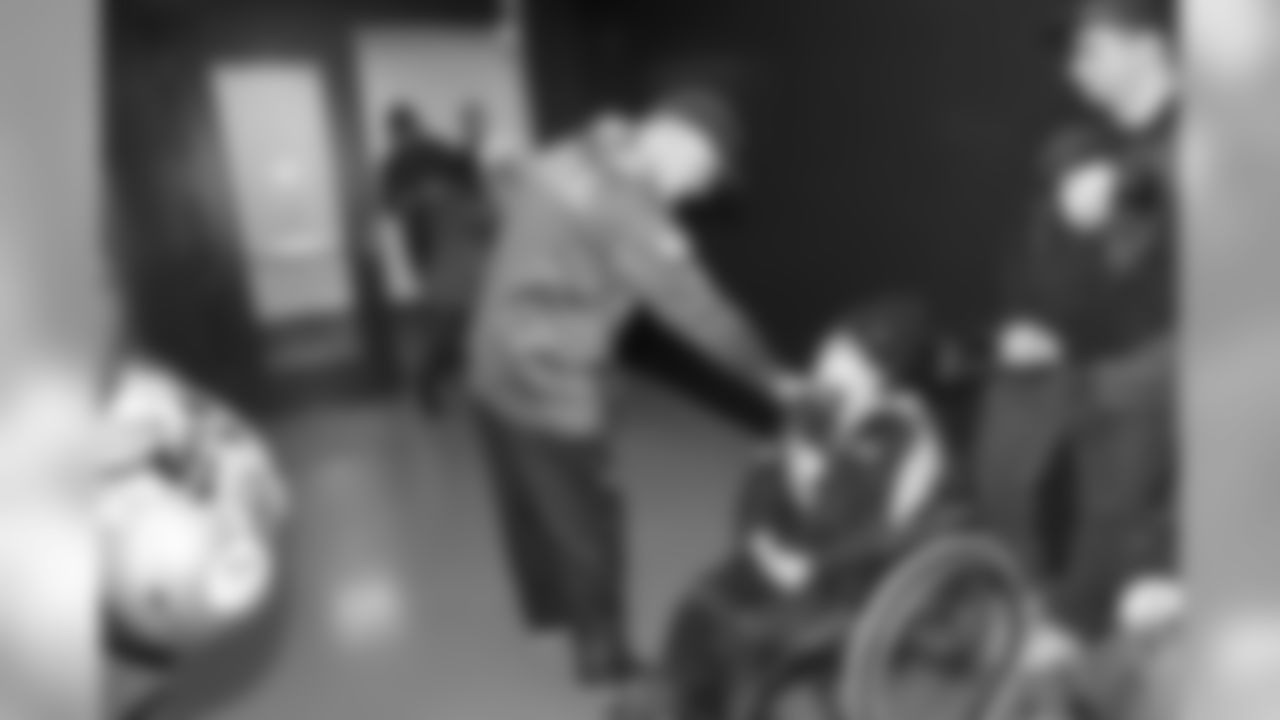
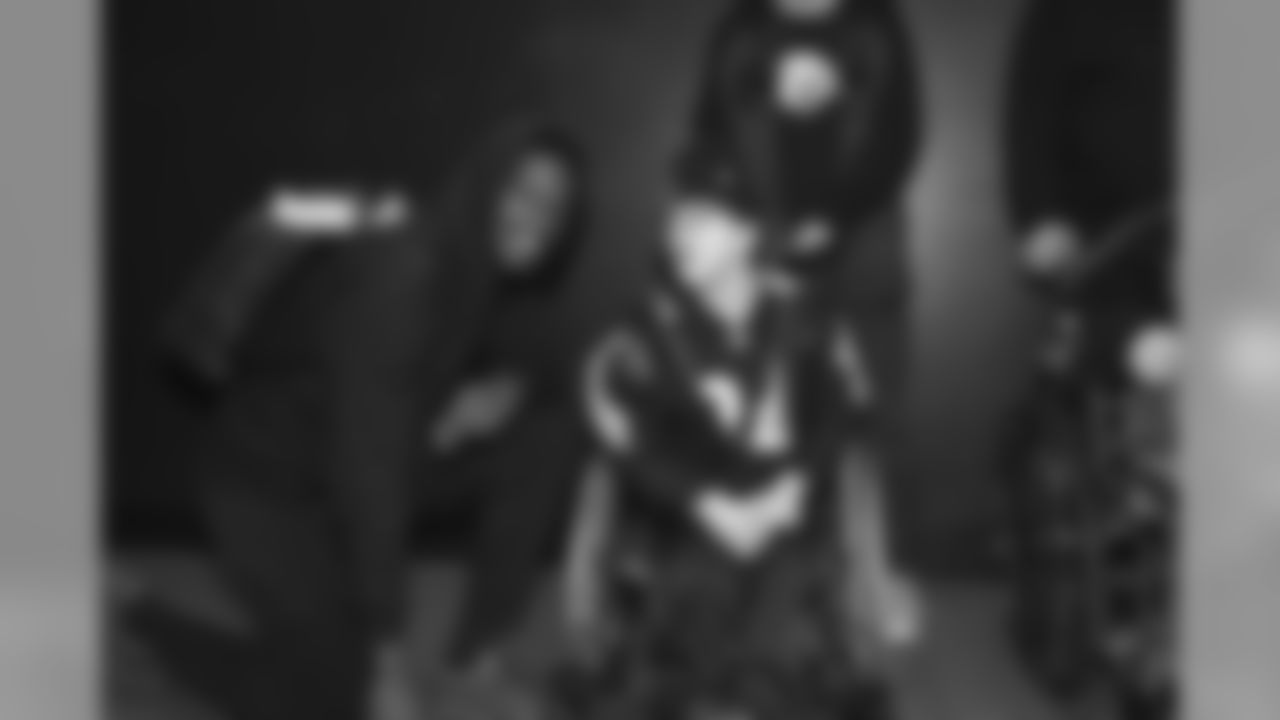
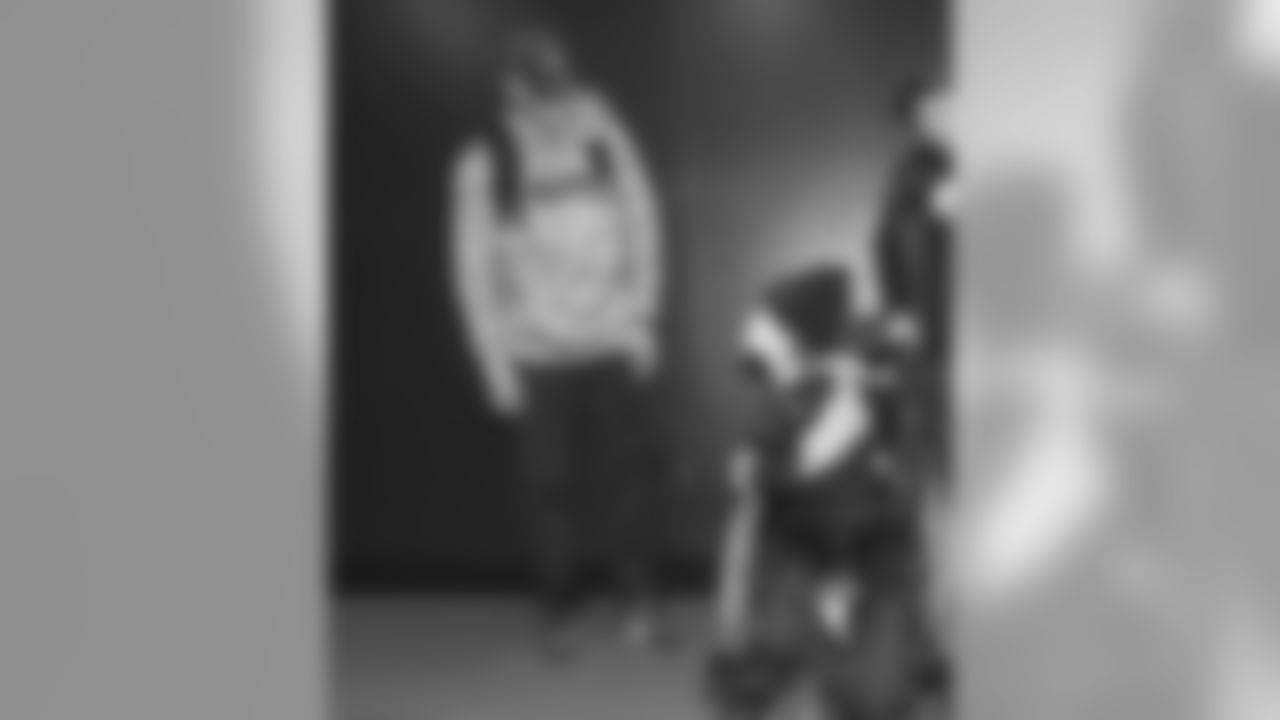
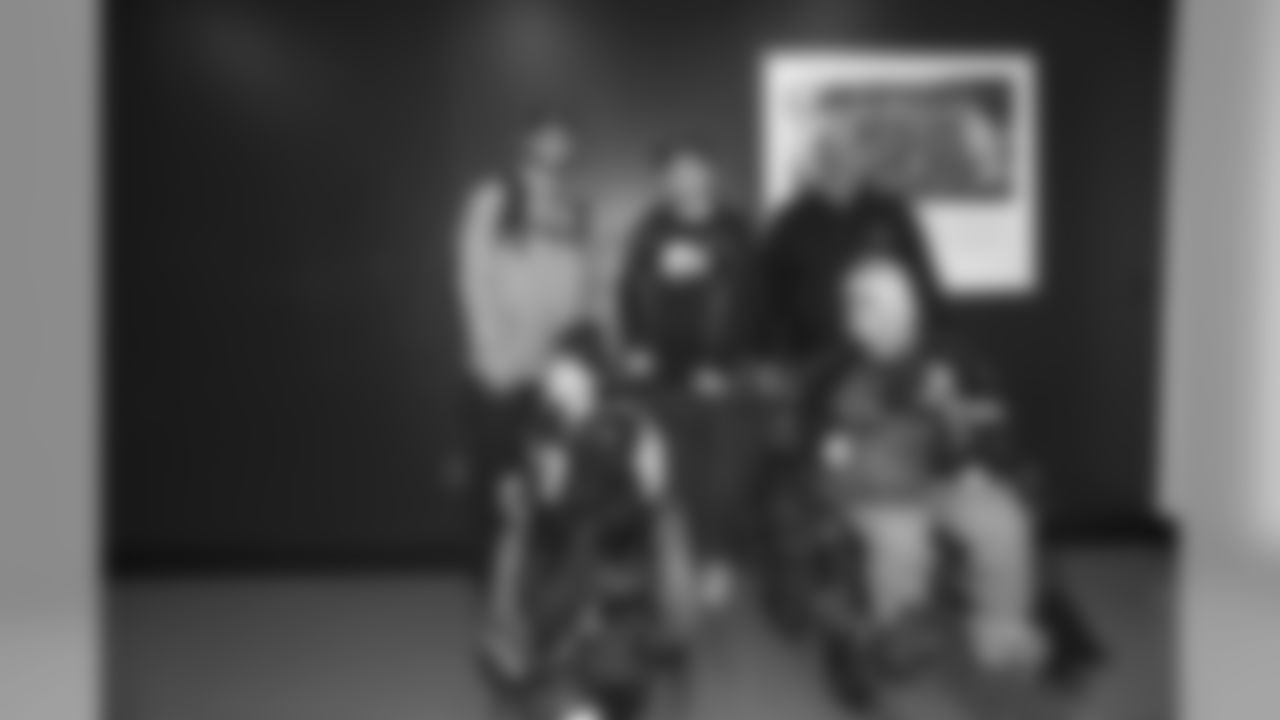
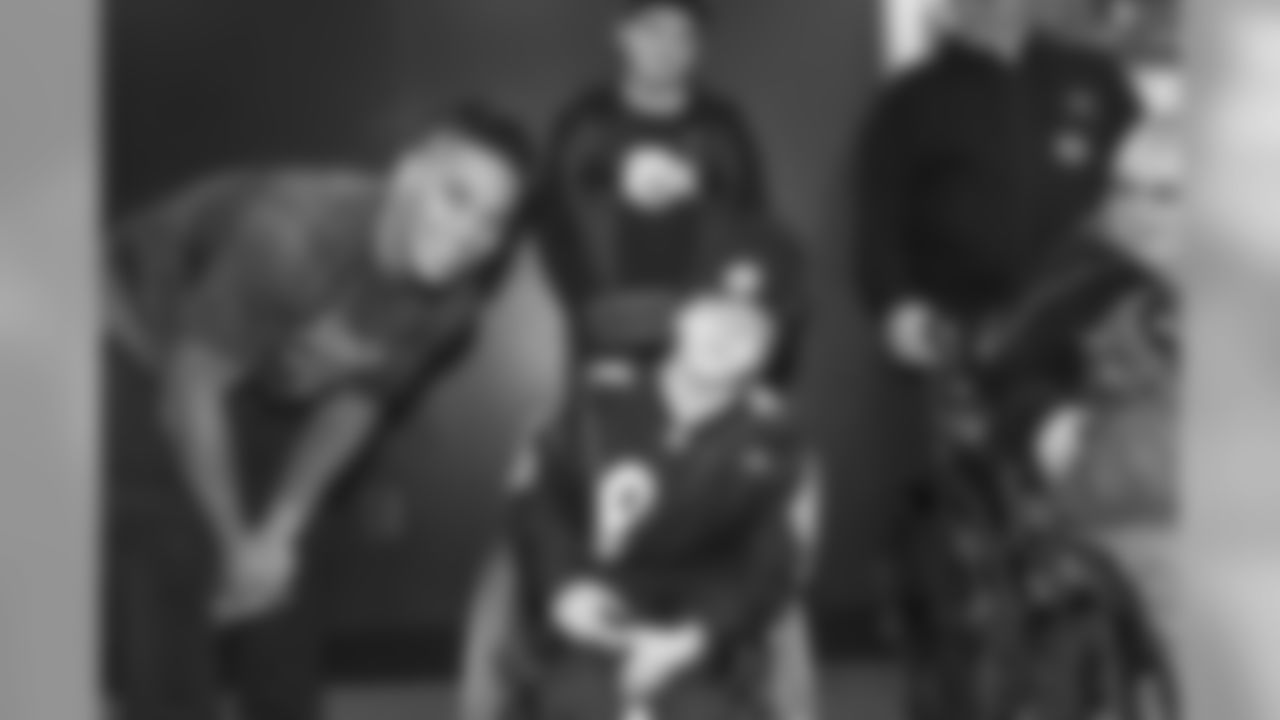
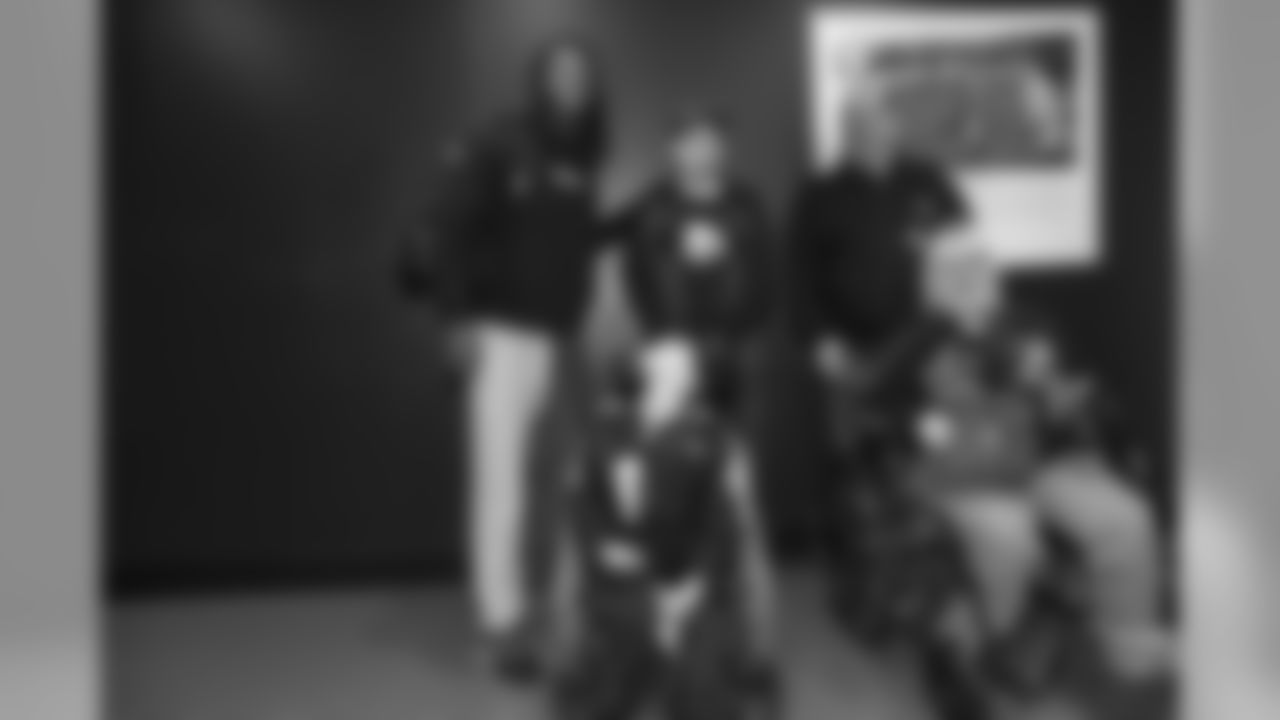
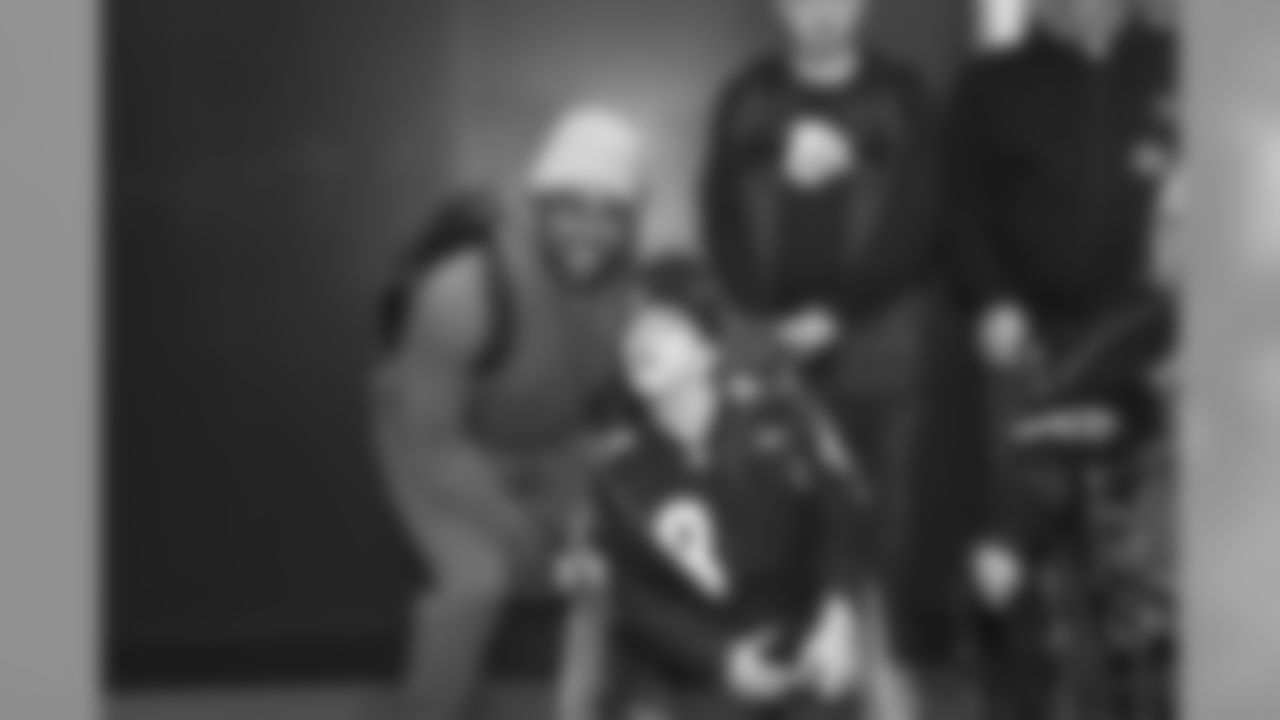

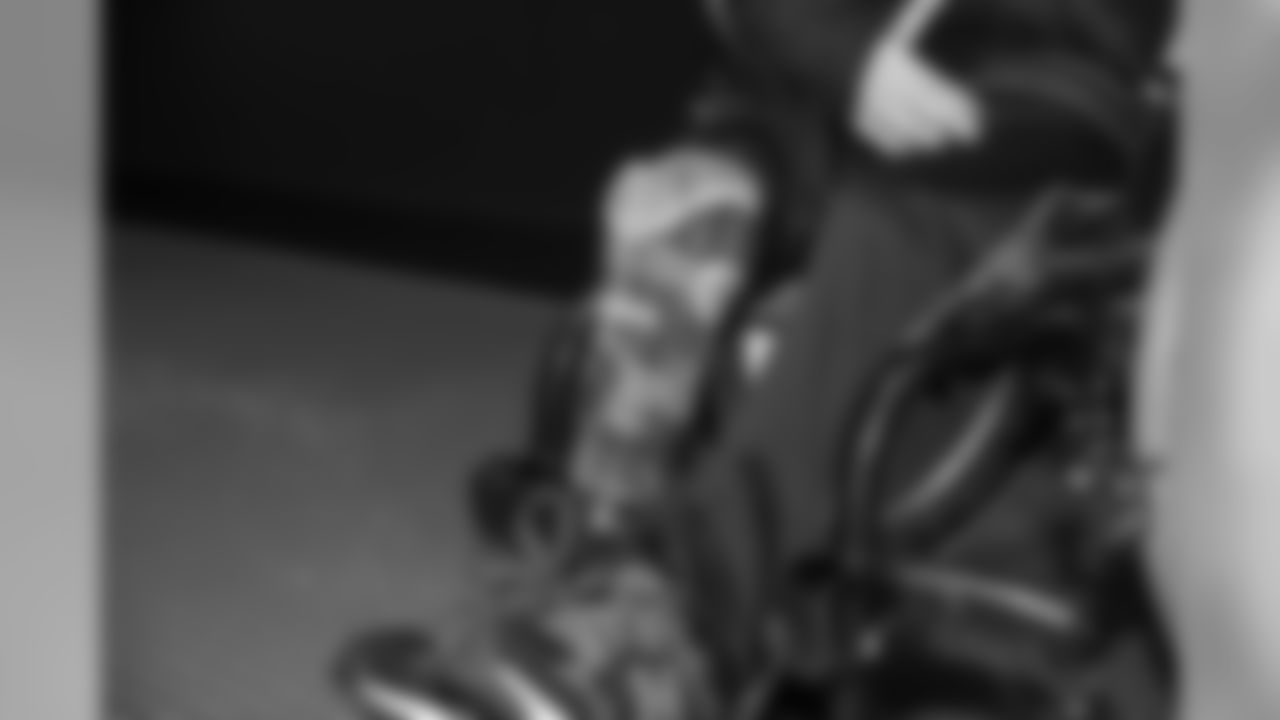
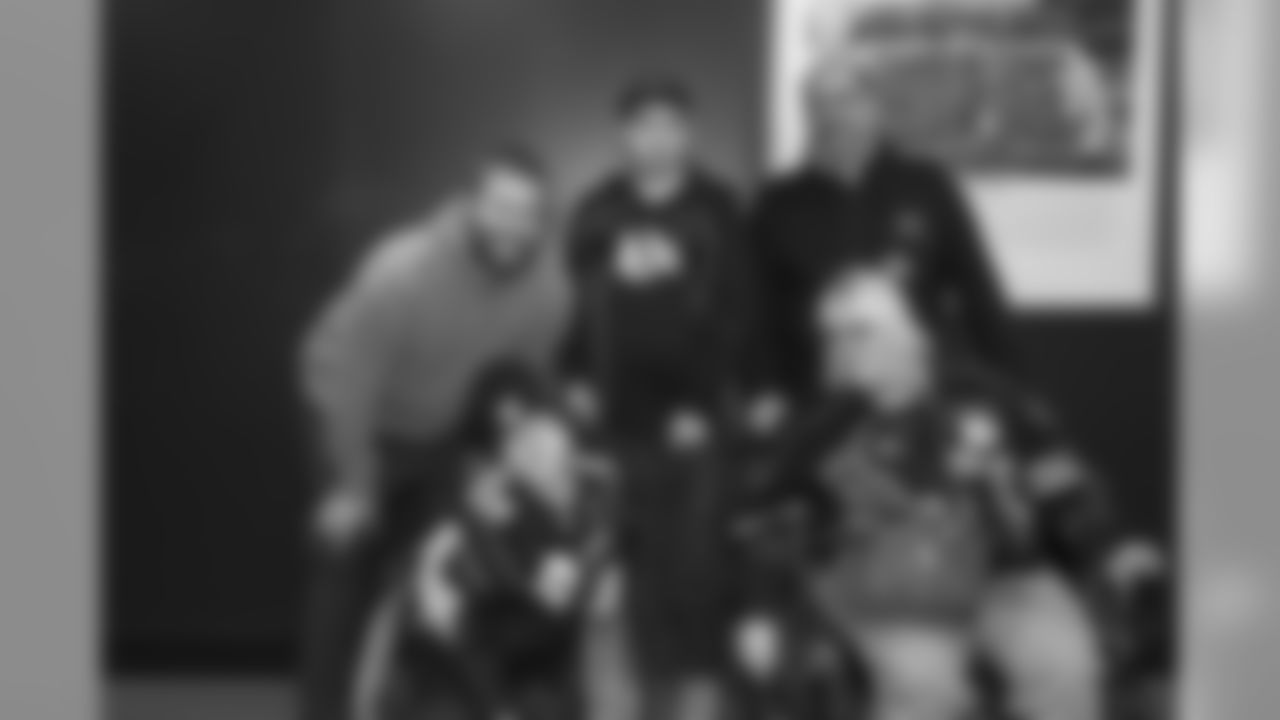

Q. How familiar were you with the defensive personnel here and how Dick LeBeau was using those players when you got hired by the Steelers?**
A. Very. I don't have a lot of hobbies, and NFL personnel is kind of a hobby of mine. Being a guy who had come up through the ranks, in the NFL at least, as a 4-3 guy, I was interested in the mystical. And from that standpoint, the 3-4 was mystical to me. I studied 3-4 teams in the offseason. I studied the men who employed those schemes, the coordinators. I studied the body types they employed within those schemes. Coming to Pittsburgh, I knew that Casey Hampton was a unique nose tackle who was tailor-made for the scheme. I knew that Aaron Smith was a unique end who was tailor-made physically for the scheme. I knew those things, I knew some of the edge people. I was extremely comfortable.
Q. If you were asked for a scouting report on LeBeau as a coordinator, what would it be?
A. Fundamentally sound. Appropriately aggressive. And light on his feet, meaning he has the ability to adjust in-game. It's reflective and representative of him at every turn.
Q. Titans quarterback Marcus Mariota played in a zone-read offense in college, and this year he has 181 yards rushing, a 5.7 average and three touchdowns rushing so far this season. On one of those kinds of plays, what is Mariota looking for or who is he looking at when making the decision whether to hand the ball to the back or pull it out and keep it himself?
A. He's generally reading the end of the line. They usually have a couple of those plays ready week-to-week, and they're often very different. What we're looking at on tape won't be what we're defending in-stadium, but in concept it will be. So from his perspective Mariota will have a similar read. He'll read the end man on the line of scrimmage and determine whether that guy is in a close-position, in terms of pursuing the run, or if he's in a position to play the quarterback. Then he'll either give the ball to the running back or pull it. He'll pull it a couple of times a game to make sure people are playing responsibility football. He's the type of athlete who can make a splash play out of it – shoot, he went 30-plus yards for a touchdown vs. the Texans. So we're aware of it. We better respect it, but we're a group that tries to take a fundamentally sound approach to defense anyway. We believe opportunities like this against guys like him and schemes like this are just an opportunity to prove that.
Q. What are you telling your guys in terms of handling that kind of play?
A. That we're going to play rules and responsibility football like we always do. His abilities and the schemes they employ are just an opportunity for us to highlight what we do on a day to day basis. If you want to be great on defense, you have to be fundamentally sound. You have to have dive-quarterback-pitch. Guys who are in their mid-40s like me and grew up in this profession, all defensive teaching started there: dive-quarterback-pitch. We all come from a wing-T or wishbone background. I was a left halfback in Little League.
Q. Is it as simple as telling one of your outside guys – say, T.J. Watt – that if that play comes to your side, your guy is the quarterback?
A. It goes beyond telling a guy, like T.J. Watt, "You have the quarterback." Each defensive call that we have has forcing units, people who set the edge for the defense, and those people may change. But those are the people we're talking to in terms of those responsibilities and how we want them to play the ends of the line of scrimmage. Sometimes we'll play it soft. Sometimes we'll play it in a hard chase. Those are decisions we make schematically in order to play the chess match with them as well.








